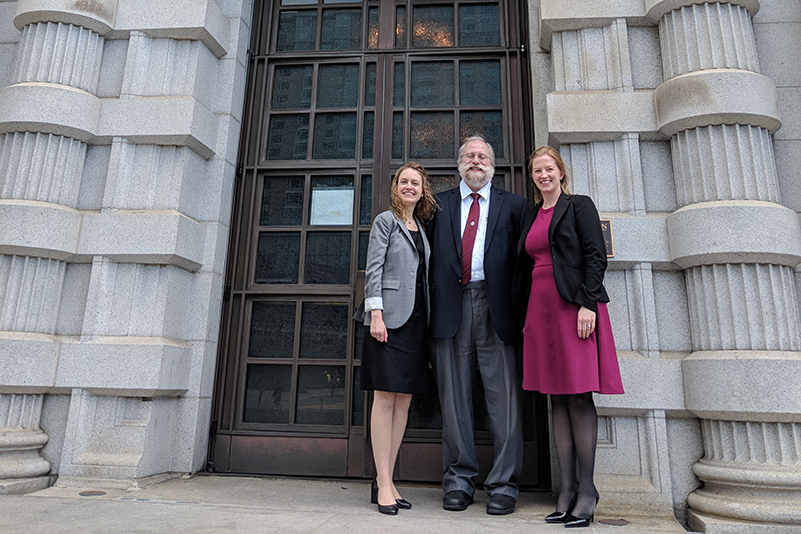For the fifth year in a row, the Appellate Clinic at the University of St. Thomas law school has won a civil rights appeal on behalf of a prisoner in the U.S. Court of Appeals for the Ninth Circuit.
On May 24, the Ninth Circuit ruled in favor of a California inmate’s claim that a correctional officer violated his constitutional rights by throwing the prisoner’s Quran to the cell floor and stomping on it. Reversing the trial court’s grant of summary judgment against the prisoner, the court of appeals held that the prisoner had shown a substantial burden on his exercise of religion under the Free Exercise Clause of the First Amendment because the desecration of the Quran prevented him from continuing his daily practice of reading from the holy text. The court also reinstated the prisoner’s Fourteenth Amendment equal protection claim arising out of the same episode. The decision is available online here.
The case, Darrell Harris v. S. Escamilla, was argued on April 12 in San Francisco by third-year law students Lindsey Rowland and Francine Kuplic, who worked on behalf of the school’s Appellate Clinic led by Professor Gregory Sisk. The appellate team began working on the case in the summer of 2017, writing opening and reply briefs over the course of several months.
The case was brought by Darrell Harris, a California state prisoner and leader of Muslim prisoners, whose Quran was desecrated by a correctional officer while Harris was away at vocational training. Four prisoner eyewitnesses report they saw the officer search Harris’s cell, seize his Quran, angrily throw it to the floor, stomp on it for the prisoners to see and kick it under the bed. Finding his most sacred possession on the floor when he returned, Harris was heartbroken and unable to continue his daily duty to read from the Quran because it had been desecrated.
Video of Rowland and Kuplic’s argument before a panel of three U.S. Court of Appeals judges is available online here.
The University of St. Thomas law school’s Appellate Clinic is a year-long course that charges students to study written and oral advocacy, appellate courts, appellate jurisdiction and the rules of appellate procedure. Clinical students represent a client pro bono under faculty supervision, briefing and arguing appellate cases on their behalf.
Support from Religious Liberty Appellate Clinic
A separate St. Thomas clinic also participated in the case in support of Harris's position. The Religious Liberty Appellate Clinic, directed by Professor Tom Berg, filed a supporting amicus curiae brief on behalf of several national Muslim organizations, including the Islamic Society of North America and the Muslims Public Affairs Council). The brief set forth Muslim teachings on the fundamental importance of the Quran, the value of reading it daily, and on harms done to individual believers and the Muslim community when officials intentionally desecrate it. Thomas Wheeler '19, a student in the clinic, did the initial drafting of the amicus brief.
The Appellate Clinic and the Religious Liberty Clinic worked on the case separately, as distinct law firms. The fact that one clinic led by a St. Thomas professor played a role as counsel for Harris, and another as counsel for amici, shows the various appellate-advocacy opportunities that are available to St. Thomas students, and that happened to overlap in this important case about religious liberty and equality for all faiths.







